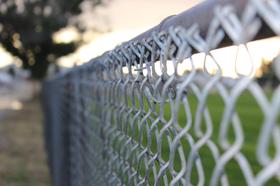For the 2025-26 school year, there are 3 public schools serving 534 students in Hardin County CUSD 1 School District. This district's average testing ranking is 3/10, which is in the bottom 50% of public schools in Illinois.
Public Schools in Hardin County CUSD 1 School District have an average math proficiency score of 14% (versus the Illinois public school average of 27%), and reading proficiency score of 21% (versus the 30% statewide average).
Minority enrollment is 8% of the student body (majority Hispanic), which is less than the Illinois public school average of 55% (majority Hispanic).
Overview
This School District
This State (IL)
# Schools
3 Schools
4,398 Schools
# Students
534 Students
1,845,459 Students
# Teachers
42 Teachers
136,655 Teachers
Student-Teacher Ratio
13:1
13:1
Student By Grade
District Rank
Hardin County CUSD 1 School District, which is ranked within the bottom 50% of all 864 school districts in Illinois (based off of combined math and reading proficiency testing data) for the 2022-2023 school year.
The school district's graduation rate of 85% has increased from 80-89% over five school years.
Overall District Rank
#498 out of 865 school districts
(Bottom 50%)
(Bottom 50%)
Math Test Scores (% Proficient)
27%
27%
Reading/Language Arts Test Scores (% Proficient)
21%
30%
Science Test Scores (% Proficient)
40-44%
50%
Graduation Rate
85%
87%
Students by Ethnicity:
Diversity Score
0.16
0.69
% American Indian
n/a
n/a
% Asian
n/a
6%
% Hispanic
3%
28%
% Black
n/a
17%
% White
92%
45%
% Hawaiian
n/a
n/a
% Two or more races
5%
4%
All Ethnic Groups
District Revenue and Spending
Total Revenue (21-22)
$8 MM
$15 MM
Spending (21-22)
$7 MM
$14 MM
Revenue / Student (21-22)
$15,628
$19,707
Spending / Student (21-22)
$12,708
$19,097
Best Hardin County CUSD 1 School District Public Schools (2025-26)
School
(Math and Reading Proficiency)
(Math and Reading Proficiency)
Location
Quick Facts
Rank: #11.
Hardin County Elementary School
(Math: 25-29% | Reading: 25-29%)
Rank:
Rank:
6/
Top 50%10
4 School Rd
Elizabethtown, IL 62931
(618) 287-2411
Elizabethtown, IL 62931
(618) 287-2411
Gr: PK-5 | 234 students Student-teacher ratio: 11:1 Minority enrollment: 10%
Rank: #22.
Hardin County High School
(Math: ≤10% | Reading: ≤20%)
Rank:
Rank:
3/
Bottom 50%10
4 School Rd
Elizabethtown, IL 62931
(618) 287-2141
Elizabethtown, IL 62931
(618) 287-2141
Gr: 9-12 | 173 students Student-teacher ratio: 13:1 Minority enrollment: 6%
Rank: #33.
Hardin County Jr High School
(Math: ≤5% | Reading: 15-19%)
Rank:
Rank:
2/
Bottom 50%10
4 School Rd
Elizabethtown, IL 62931
(618) 287-2411
Elizabethtown, IL 62931
(618) 287-2411
Gr: 6-8 | 127 students Student-teacher ratio: 16:1 Minority enrollment: 7%
Frequently Asked Questions
How many schools belong to Hardin County CUSD 1 School District?
Hardin County CUSD 1 School District manages 3 public schools serving 534 students.
What is the rank of Hardin County CUSD 1 School District?
Hardin County CUSD 1 School District is ranked #670 out of 864 school districts in Illinois (bottom 50%) based off of combined math and reading proficiency testing data for the 2022-2023 school year.
What is the racial composition of students in Hardin County CUSD 1 School District?
92% of Hardin County CUSD 1 School District students are White, 5% of students are Two or more races, and 3% of students are Hispanic.
What is the student/teacher ratio of Hardin County CUSD 1 School District?
Hardin County CUSD 1 School District has a student/teacher ratio of 13:1, which is lower than the Illinois state average of 14:1.
Recent Articles

School Choice vs. Neighborhood Schools: Key Factors
Explore school choice vs. neighborhood schools in 2025. Learn key factors parents should weigh when deciding the best fit for their child.

Best School Match 2025: Public vs Charter vs Magnet
Compare 2025 public, charter, and magnet school options with updated data, trends, and strategies to find the best fit.

Public School Boundaries and Equity in 2025
Explore how public school boundaries shape access, equity, and opportunity for students in 2025. Learn the impact on families and education policy.





